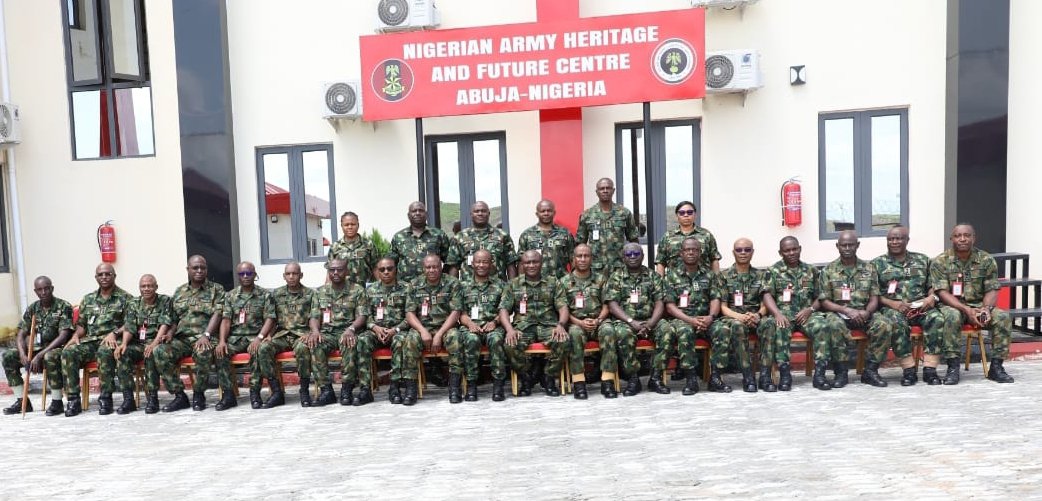By Sumaila Ogbaje
The Deputy Commandant and Director of Studies, Army War College Nigeria (AWCN) Brig.-Gen. Aminu Umar, has stressed the need for Nigerian Army to embrace emerging technology to achieved modernisation
Umar said this while delivering a paper titled, “Future Warfare and Modernisation of the Military: Implications for the Nigerian Army by 2033” at the Nigerian Army Heritage and Future Centre on Thursday in Abuja.
According to him, there is a need for the Nigerian Army to take deliberate steps to train personnel with the requisite skills necessary to utilise emerging technologies.
He said that available records had shown that the strength of the Nigerian army as of the Second Quarter of 2023 was about 180,000 personnel.
“The record confirmed that about 4.28 per cent, representing 6,840 of personnel were educated on emerging technologies.
“The remaining 153,160 personnel, representing 95.72 per cent, were unaware of emerging technologies and this would undermine the army’s ability to utilise the technology for modernisation.
“For instance, the development of the Nigerian Army Smart Soldier Concept is hindered due to limited skilled manpower in emerging technologies towards modernization of the army.
“Therefore, there is a need for the army to take deliberate steps to train personnel with the requisite skills necessary to utilise emerging technologies.
“Thus, skilled manpower development is key to modernization by 2033,” he said.
Umar said the nature of war remained enduring, but its character changes, adding that one of the primary instigators of the change had been technology which had revolutionised everything from tactics and logistics to weaponry and autonomous systems.
He said the future warfare would most likely be characterised by considerable structural and industrial damage, force dispersion, smaller tailored force structures, new personal equipment, data links to the individual soldier, a 360-degree threat and non-traditional enemy force structure amongst others.
According to him, in line with modernisation efforts towards operational efficiency, the Nigerian army as an integral part of the nation’s armed forces has inducted various military equipment into its inventory with emerging technology applications.
“For instance, the Nigerian army partnered with the National Information Technology Development Agency (NITDA) in 2020 to establish a Land Forces Simulation Centre (LFSC).
“The Centre was launched in 2021 and has consistently been employed for capacity building of army personnel to improve operational efficiency.
“The army also established the UAV Command in 2020 to train and maintain a UAV force that will be responsive and timely in delivering air imagery intelligence for Nigerian army missions,” he said.
According to him, in spite of these efforts, the application of emerging technologies for modernisation of the army to improve current and future operational efficiency has not been fully exploited.
“This could be attributed to inadequate skilled manpower and technological infrastructure among others and has limited the capacity of the Nigerian army to leverage precision-guided offensive and defensive weapons technology
“As well as sensors and early warning devices, surveillance and advanced communications to counter the menace of terrorism and other emerging security threats in Nigeria,” he added.
Umar said the Nigerian army was currently involved in spectrum of combat operations, adding that several areas of modernisation through application of emerging technologies were available to enhance efficiency in those operations.
These, according to him, include Artificial Intelligence (AI), virtual and augmented reality, blockchain technology as well as robotics.
The Director General, Nigerian Army Heritage and Future Centre, Maj.-Gen. Obinna Ajunwa, thanked the resource person and discussants for the thought provoking lecture.
Ajunwa said the lecture was one of many they the centre had planned to organise to enable the center have enough materials to be able to put up a good paper to the Army Headquarter. (NAN) (www.annews.ng)
Edited by Isaac Aregbesola









